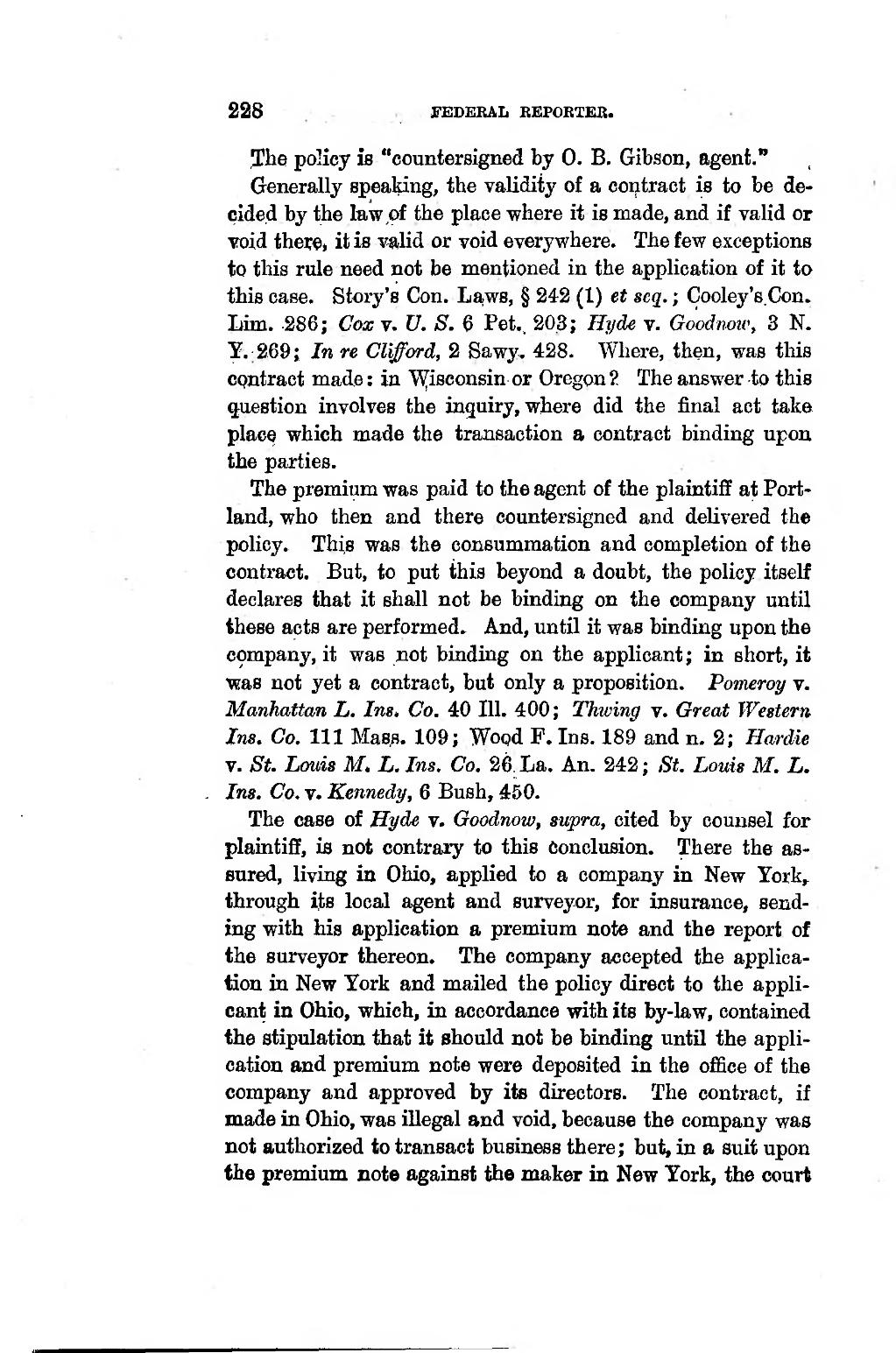228 rBDEKAL BEPOETEB. �The policy is "countersigned by 0. B. Gibson, agent." �Generally speaking, the validity of a contract is to be de- cided by the law of the place where it is made, and if valid or void there, it ia valid or void every where. The few exceptions to this rule need not be mentioned in the application of it to this case. Story's Con. La.ws, § 242 (1) et seq. ; Cooley's.Con. Lim. 286; Cox v. U. S. 6 Pet.. 203; Hyde v. Goodnow, 3 N. Y. 269; In re Clifford, 2 Sawy. 428. Where, then, was this cpntract made : in "Vyisconsin or Oregon ? The answer to this question involves the inquiry, -where did the final act take place which made the transaction a contract binding upon the parties. �The premium was paid to the agent of the plaintiff at Port- land, who then and there countersigned and delivered the policy. This was the consummation and completion of the contract. But, to put this beyond a doubt, the policy itself declares that it shall not be binding on the company until these acts are performed. And, until it was binding upon the company, it was not binding on the applicant ; in short, it was not yet a contract, but only a proposition. Pomeroy v. Manhattan L. Ins, Co. 40 111. 400 ; Thwing v. Great Western Ins. Co. 111 Mass. 109; Woqd P. Ins. 189 and n. 2; Hardie V. St. Louis M. L.Ins. Co. 26 La. An. 242; St. Louis M. L. Ins. Co. V. Kennedy, 6 Bush, 450. �The case of Hyde v. Goodnow, supra, cited by counsel for plaintiff, is not contrary to this Conclusion. There the as- Bured, living in Ohio, applied to a company in New York,, through its local agent and surveyor, for insurance, send- ing with his application a premium note and the report of the surveyor thereon. The company acoepted the applica- tion in New York and mailed the policy direct to the appli- cant in Ohio, which, in acoordance with its by-law, contained the stipulation that it should not be binding until the appli- cation and premium note were deposited in the office of the company and approved by its directors. The contract, if made in Ohio, was illegal and void, because the company was not authorized to transact business there ; but, in a suit upon the premium note against the maker in New York, the court ����
